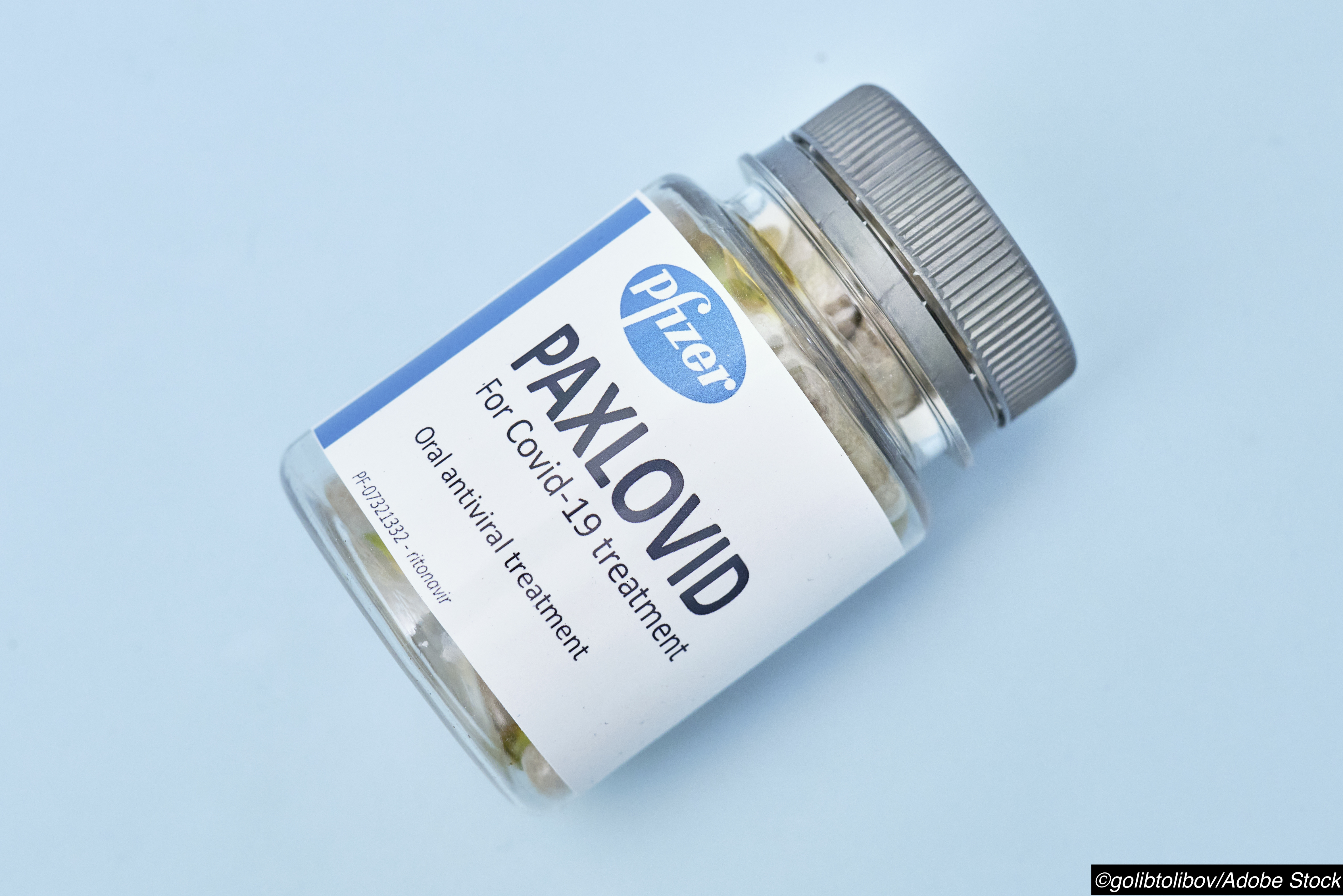nirmatrelvir/ritonavir combo for high-risk patients
The FDA granted an emergency use authorization (EUA) to combination nirmatrelvir and ritonavir tablets (Paxlovid) to treat patients ages 12 and older who tested positive for SARS-CoV-2 and are at high risk for developing severe infection. The authorization marks the first antiviral—and the first pill—to be approved for treatment of Covid-19.
The antiviral combination, which is only available by prescription, is intended to be initiated as soon as possible after a patient is diagnosed with Covid-19 and within five days of symptom onset, the FDA explained.
“Today’s authorization introduces the first treatment for Covid-19 that is in the form of a pill that is taken orally—a major step forward in the fight against this global pandemic,” said Patrizia Cavazzoni, MD, director of the FDA’s Center for Drug Evaluation and Research, in a statement. “This authorization provides a new tool to combat Covid-19 at a crucial time in the pandemic as new variants emerge and promises to make antiviral treatment more accessible to patients who are at high risk for progression to severe Covid-19.”
The drug combination is not intended for pre- or post-exposure prophylaxis or for initiation of treatment among patients requiring hospitalization, the agency noted, and it is not a replacement for currently authorized vaccines.
“The FDA has approved one vaccine and authorized others to prevent Covid-19 and serious clinical outcomes associated with a Covid-19 infection, including hospitalization and death,” the agency wrote. “The FDA urges the public to get vaccinated and receive a booster if eligible.”
This FDA announcement comes less than 24 hours after President Biden announced a series of new initiatives intended to help stave off Covid-19 case surges caused by the rapidly spreading Omicron variant this holiday season. In a speech delivered Dec. 21, Biden unveiled plans to increase federal support for U.S. hospitals, ramp up access to free at-home Covid-19 test kits, and make it easier for Americans to get their Covid booster shots—or their initial vaccine series, if they are among the approximately 40 million U.S. residents yet to get the shot.
With this new EUA, the U.S. has access to a new drug to help ease the burden on America’s already overtaxed hospital system and, hopefully, reduce Covid-related deaths.
This authorization was based on findings from the EPIC-HR trial, a randomized, double-blind, placebo-controlled clinical trial that assessed the efficacy of nirmatrelvir/ritonavir to treat non-hospitalized adults with symptomatic, laboratory confirmed SARS-CoV-2 infection. “Patients were adults 18 years of age and older with a prespecified risk factor for progression to severe disease or were 60 years and older regardless of prespecified chronic medical conditions,” the FDA explained. “All patients had not received a Covid-19 vaccine and had not been previously infected with Covid-19. The main outcome measured in the trial was the proportion of people who were hospitalized due to Covid-19 or died due to any cause during 28 days of follow-up.” A total of 1,039 patients were randomized to receive nirmatrelvir/ritonavir, while a further 1,046 were assigned to placebo.
In that trial, nirmatrelvir/ritonavir reduced the risk of Covid-19 hospitalization or death from any cause by 88% compared to placebo among patients who received the combination within five days of symptom onset and who did not receive treatment with monoclonal antibodies, the agency wrote. Only 0.8% of patients who received nirmatrelvir/ritonavir were hospitalized or died over the course of 28 days of follow-up versus 6% in the placebo arm.
The most common side effects observed in the EPIC-HR trial included impaired sense of taste, diarrhea, high blood pressure, and muscle aches. Also, the agency warned that using the combination in individuals with uncontrolled or undiagnosed HIV-1 infection could potentially lead to HIV-1 drug resistance, and ritonavir has the potential to cause liver damage.
In addition, since the combination works by inhibiting certain enzymes that break down certain drugs, nirmatrelvir/ritonavir “is contraindicated with certain drugs that are highly dependent on those enzymes for metabolism and for which elevated concentrations of certain drugs are associated with serious and/or life-threatening reactions,” the FDA wrote. “[Nirmatrelvir/ritonavir] is also contraindicated with drugs that, conversely, strongly induce those same enzymes, leading to the faster breakdown of nirmatrelvir or ritonavir, as reduced concentrations of nirmatrelvir or ritonavir may be associated with potentially losing virologic response and developing viral resistance. [Nirmatrelvir/ritonavir] cannot be started immediately after discontinuing such medications because the effects of those medications remain after discontinuation.”
The agency included a full list of drugs that should not be taken in combination with nirmatrelvir/ritonavir in its EUA fact sheet.
John McKenna, Associate Editor, BreakingMED™
Cat ID: 190
Topic ID: 79,190,730,933,190,926,192,927,151,725,928,925,934



